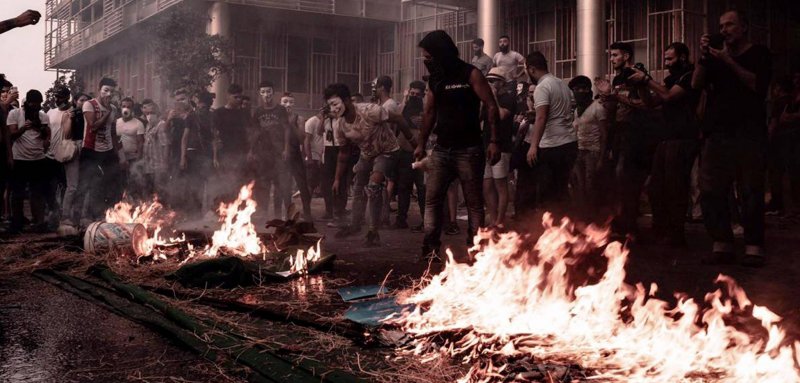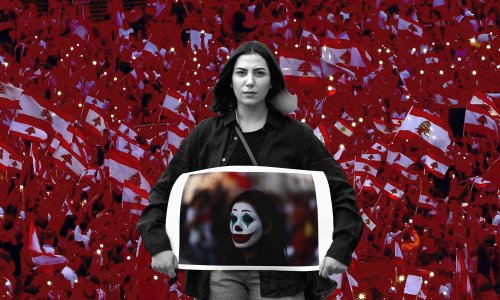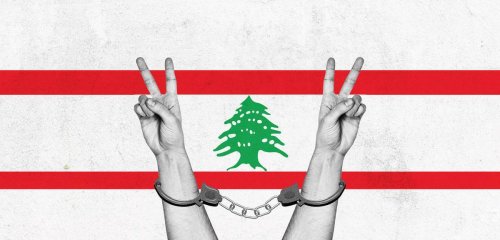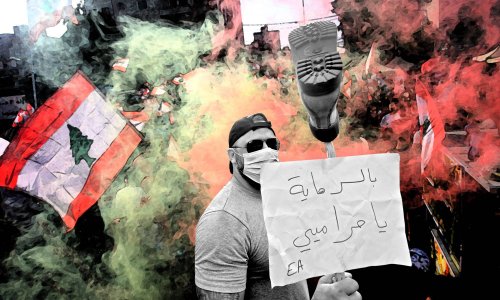A corrective path forward for a nation in revolt starts with the condemnation of archaic social practices and countering the normalization of deeply rooted prejudices embedded in our culture. This takes root if and when the media decide to play a progressive role by offering a platform that bring socially contentious topics out of the shadows and into the public eye.
A new trend has emerged in the past few days: expelling politicians - former and current- from public places. A network of people has come together to tip each other off on the location of those officials. If you are politician, watch out! It could be the waiter in your favourite restaurant, the salesperson where you shop for clothes, or simply another citizen who happens to be walking by in a shopping mall. All you have to do, should you encounter a politician in Lebanon, is inform the group-without a name (their real name)- and they will do the rest. Thanks to local media outlets for the platform they gave them, we now know who they are and ways to get in touch.
In contrast, a few weeks ago, a TV show in which foreign domestic workers were ridiculed on national TV went by unnoticed on local media. This recent stunt of stalking politicians seems to be on the media’s radar. Surprisingly, it was so much “trending” that a member of the group was invited on TV to showcase the movement’s new-style of “activism”.
A revolting nation's corrective path starts with the condemnation of archaic social practices and countering the normalisation of deeply rooted prejudices embedded in our culture. Lebanon's media need to play its role by publicising contentious topics.
Sadly - and despite living in time a revolution- questions around race, gender and class fail to make it into the headlines. This lack of media coverage is shameful. What makes it to the news circle is controversial topics, often times irrespective of substance or content. By so doing, Lebanon’s media outlets fail to play the dynamic role it ought to play, inducing a positive behavioural change amongst its citizens and vis-à-vis “the other”.
What is particularly concerning about the above “expulsion stunt” is the following: Respect for the rule of law is what differentiates us “citizens” from those we accuse us of the contrary; that is our politicians. Going out and about infringing on people’s privacy by stalking them in public spaces poses a grave concern about the seriousness of this revolution. The efficiency- not to mention the legitimacy - of the means that some protestors are resorting to, in a bid to pressure the government to cave in to their demands, is being thrown into question.
Take the US strike against Iran’s top commander General Qassim Suleimani and the controversy it ignited in congress and among the American public. Taking out a high-ranking official of a foreign government has set a precedent for which some pundits are accusing the US of acting worse that the world’s worst governments. The criticism has reached a boiling level to the point of calling the assassination a “state sponsored murder”.
The main concern was about the legitimacy and the morality of the strike, but more importantly it raised questions about whether or not targeting a high-ranking official on foreign land would serve the intended goals of Trump’s “maximum pressure” strategy. Trump’s order has generated a lot of rebuke even amongst Republicans that questioned the legitimacy of the hit, but even more so the strategic tactic behind the killing.
Not that the US has a track record of legitimate actions around the word, nor does it seek legitimacy to carry out its foreign policy, however, there is a system in place, that could with bipartisan support, rein in the president’s impulsive actions.
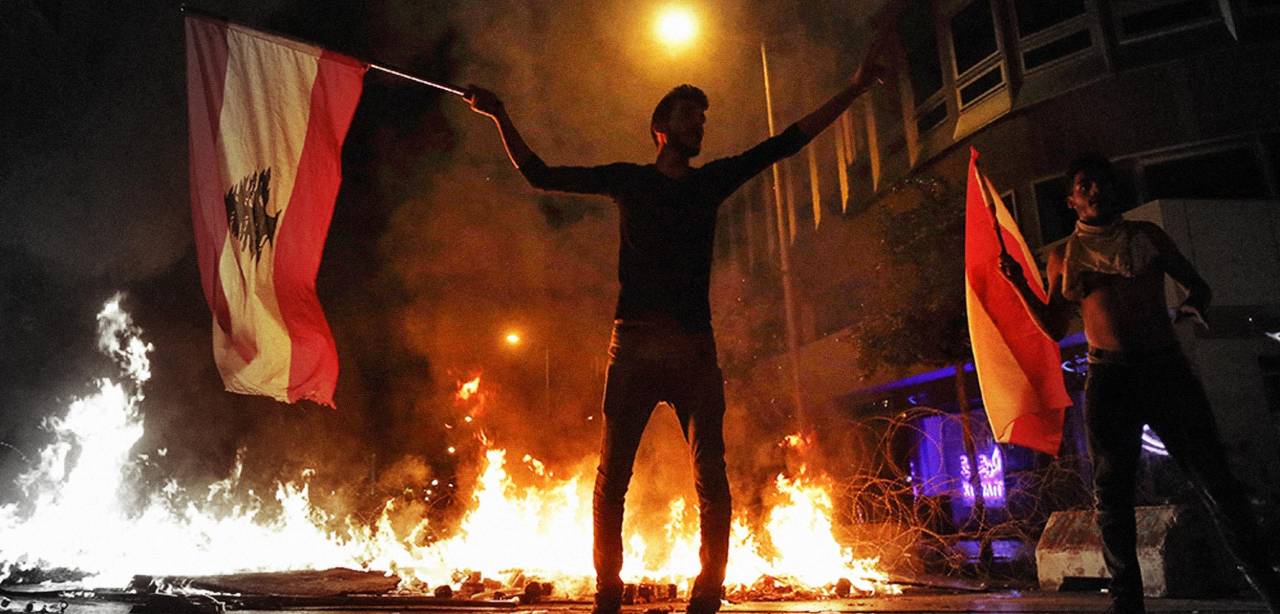
Congress has passed a resolution seeking to limit Trump’s powers to go to war with Iran, curtailing his ability to authorize military action against Iran and demanding congressional approval prior to any war.
It is an uphill battle for the resolution to see light as it still needs a majority in the Republican-held Senate. However, it has been reported that the measure is on track to be passed after four republicans said they would offer their support and break with the president.
The president is still able to bypass congress and senate by executive order. Despite that, there is a system in place that holds presidents to account. The weaknesses of the system and whether presidents are given too much leeway to override the system doesn’t render the system unhealthy.
These are the kind of standards I would like to draw upon. Despite the flaws inherited in any system around the world, the pathway towards a healthy democracy is the respect of the rule of law whose intended meaning and purpose is to guides the citizens’ actions and that of their elected officials.
This leads me to point towards the slippery slope that some of the protestors are taking. Forms of protests do vary, but going around creating mayhem and acting as if the people have suddenly been bestowed the power of enacting the judiciary system -once by haunting down officials and another by performing mock judiciary trials in public- are innocuous.
Burning tires reflects citizens' frustration, reflecting a level of detachment from reality - a reality being reckoned even in a country in mourning. Lebanon is suffocating from a man-made economic and environmental disaster coupled with moral bankruptcy
Change is gradual. Revolutions around the world in the view of Osama el-Rahbani take decades to realize their obectives. The honourable gentleman, a music composer who descends from a family of rich musical and cultural heritage, expressed his anger on TV at those in power who have not yet responded to the protestors’ demands after three months of peaceful protests. He came down on us with his masterpiece when he suggested that in the face of politicians’ inaction, change can only happen by blood based as happened with “revolutions around the world”.
What is giving the revolution its legitimacy is the fact that it is peacefully expressing its right to freedom of expression. This constitutes the strongest aspect and a bonding factor for much of the Lebanese. Otherwise, protestors become outlaws and outlaws will meet force which might lead to the revolution’s demise. The international community has been vocal in its support for the protests because the Lebanese have been able to present a unique model with extraordinary forms of peaceful expressions through art, music, awareness-raising and educational campaigns especially in Tripoli where for so long the impoverished city has been portrayed in the media as being an incubator for terrorism. Tripoli has shown an exemplary model for this revolution in terms of its political literacy, progressive ideas and above all its stamina.
Far from the destructive tendencies that would put off the spark of the revolution, the nation has been in revolt; these were men and women creating art and not rebels wreaking havoc - something the revered music composer found to be quite unfruitful.
I would also like to draw on what, ironically for some, I find to be related to the developments we are living in our part of the world. Raging fires have engulfed Australia in what has been characterized as a biological armageddon. Swaths of land had been wiped out posing a threat to the country’s ecological and environmental landscape. 24 people have been dead and almost half a billion animals being wiped out. The wildfires have destroyed the habitats of endemic species that are only found in Australia and that are now at risk of extinction.
This natural disaster has sparked a nationwide debate around Australia’s commitment to reduce carbon emissions, where the scale of the fires went to show just how vulnerable Australia is to the impact of climate change. This natural disaster has brought everyone together and more importantly pressured the government to address the need for policy change. Australians also demanded an acknowledgment on the part of the government of the effects of coal and mining industries on the climate issue.
All this to say that a natural disaster was not only an occasion for mourning but even more so a call to action. The whole nation sprung to action due to the threat climate change poses to its wild life. The government air dropped over two ton of sweet potatoes and carrots into the wild to preserve the natural habitat for its wild life species. And here, the protestors still block roads and the first thing they do is burn tires to make a point, thus intoxicating the air we breathe.
Times of revolution also demand that we talk about pollution and how failed government policies over the years have not only failed to address, but also exacerbated the problem.
Some might argue that we don’t have the luxury to discuss climate change amidst this national turmoil and that more pressing needs push climate change issues down our reformist agenda. However, calling for change demands being at the forefront of change. Our agenda of reforms must go beyond the provision of basic needs and services to include the right to clean water and air, in addition to being part of the global conversation around the need to cut back on carbon emissions with meaningful policies in place.
Access to clean air is a basic requirement that precedes the rest of the long list of the called-for reforms. The protestors engaging in the act of burning tires need to know that we need to live in a viable state, but before anything else WE NEED TO STAY ALIVE to make the prospect of living a decent life a reality.
Burning tires, as a statement, reflects just how frustrated the citizens are. It also reflects a level of detachment from reality- a reality that is being reckoned even in a country in mourning. In Lebanon, we are suffocating from a man-made economic and environmental disaster coupled with moral bankruptcy. Still we lack a cohesive strategy and an action plan away from the cacophony in media and public spaces upon which we could put off the fires raging from within.
*The views and opinions expressed in this article are those of the author and do not necessarily reflect Raseef22
Raseef22 is a not for profit entity. Our focus is on quality journalism. Every contribution to the NasRaseef membership goes directly towards journalism production. We stand independent, not accepting corporate sponsorships, sponsored content or political funding.
Support our mission to keep Raseef22 available to all readers by clicking here!
Interested in writing with us? Check our pitch process here!
